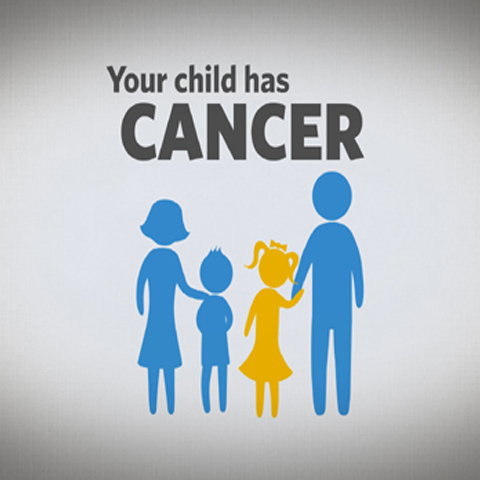Hearing the doctor say the words “your child has cancer” will never be easy to hear.
Parents go through several stages throughout this process much like the five stages of grief; denial, anger, bargaining, depression and acceptance.
However, unlike losing a loved one suddenly, cancer can go on for several years with many highs and lows.
This results in stages varying in timing, duration, and cycles.
By acknowledging and understanding the possible stages you can better progress through the phases parents’ may go through.
Shock
Childhood cancer will always come out of nowhere and families are in utter shock when it happens. The connection between your healthy happy child could never be linked to a malignant tumor.
happens. The connection between your healthy happy child could never be linked to a malignant tumor.
Many parents report feelings of numbness as they are unable to think clearly and struggle to remember things the doctor has said. The shock will only subside over time but, there are things you can do to better alleviate it.
Contact family or friends and reach out for their support, by discussing the situation. This helps sort through the myriad of questions and thoughts going on in your mind.
Ask a close friend to take notes when meeting with doctors, so if you do ever go through a blank moment, there is someone there, writing down important points the doctor or surgeon will mention.
Disbelief & Denial
Along with shock, denial and disbelief occur. Often parents think some crazy mistake has  been made and the results couldn’t possibly be from their child.
been made and the results couldn’t possibly be from their child.
The time-frame of this stage should be as short as possible as treatment should not be delayed due to denial of the situation.
However, second opinions are recommended and will help to reassure you with the doubts you may have.
Research from credible resources will open up your mind to the different types of cancer and the commonality between them and your child’s diagnosis.
Fear & Anxiety
Parents will fear the process ahead as it is diving into the unknown. Even if you have had some experience with cancer you will still be unsure, as every process and diagnosis is different.
some experience with cancer you will still be unsure, as every process and diagnosis is different.
Although it feels like the world has stopped, unfortunately, it hasn’t, so you going to feel pressure in your job, caring for your other children as well as the financial strain due to the high costs of the medical treatments.
To reduce anxiety beware of your thoughts and negative self-talk, stay away from the hospital vending machines as soda, possessed foods and caffeine can add to levels of anxiety.
Also, try to do light exercise daily and proper sleep are also very powerful tools in managing stress.
Guilt
Parents will often question where they went wrong, or question whether or not they were  paying enough attention to the early symptoms.
paying enough attention to the early symptoms.
Mothers may question if they were responsible in their diet and lifestyle during their pregnancy.
It is important to understand that guilt links to finding reasoning.
To make more sense of the situation you will turn to yourself, and others in finding blame and reason for the situation.
This can then result in internal family conflict. It is important for parents to overcome this feeling of guilt as it may detract attention from the important tasks and decisions they need to make.
Depression
Your child is a direct extension of you.
The hopes and dreams you had for your future will echo in the hope and dreams you have for your child’s future.
These dreams will now all be in question of ever being achieved, which can add to your feelings of depression, which can be a very strong emotion.
In order to cope with depression, one must find ways to express emotions whether it’s in therapy, writing or speaking to friends.
Anger & Frustration
“Why me? Why my child?” Understand that you will not be able to ever answer these questions.
Other frustrations can come from a complex health system or a family member who does not seem to offer enough support when needed.
Being able to find a method to release this anger is very important in the coping process, exercise or meditation can allow for a positive release of emotion.
From person to person the timing and duration of the stages will never be the same but, by understanding that you are not alone in your emotions you will be more equipped to manage this time as best as possible and ultimately be more present.
Practicing self-love through caring about your personal health will help you be more present for your child and family.
Source: Emotional Stages for Parents of Children with Cancer




Most Commented